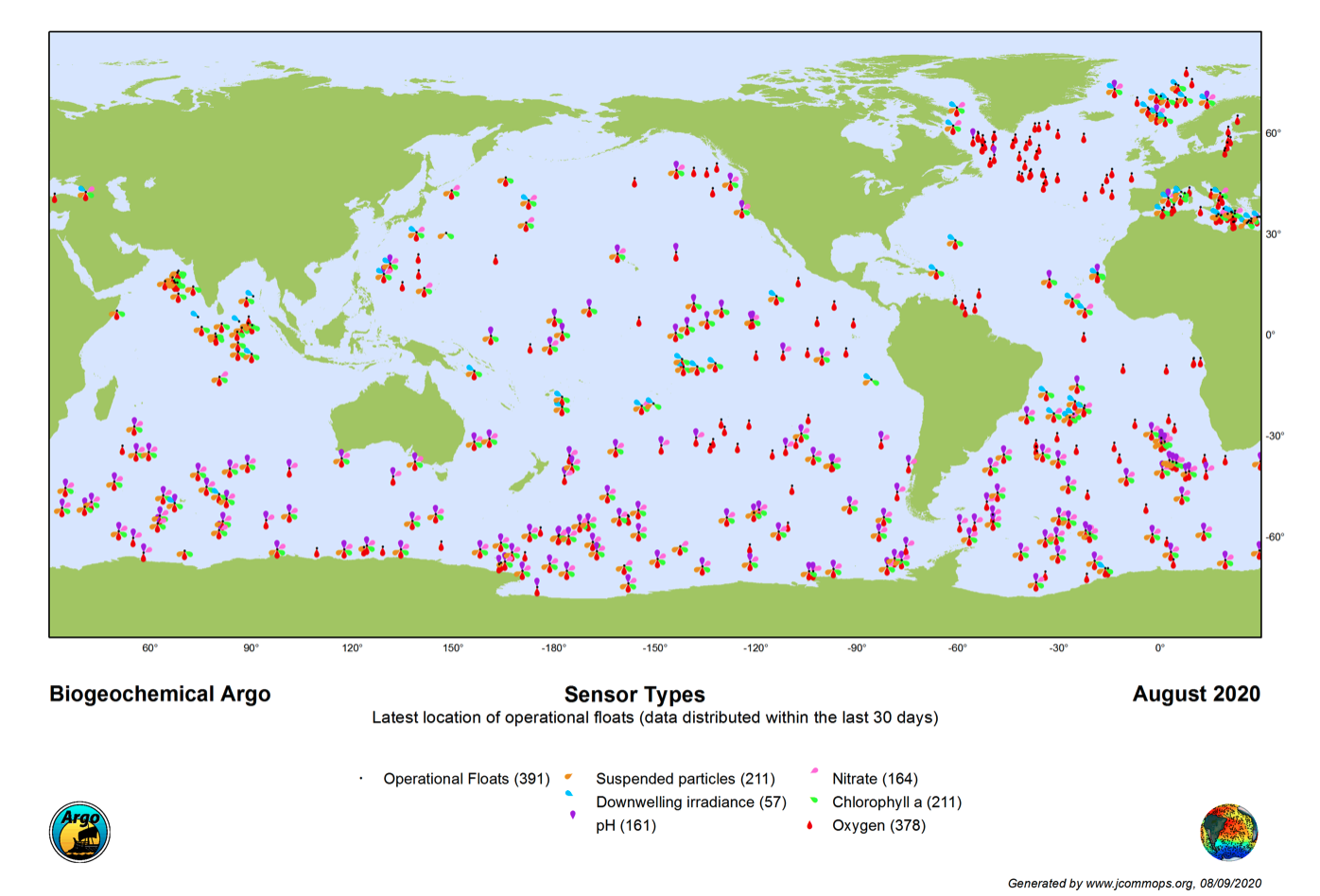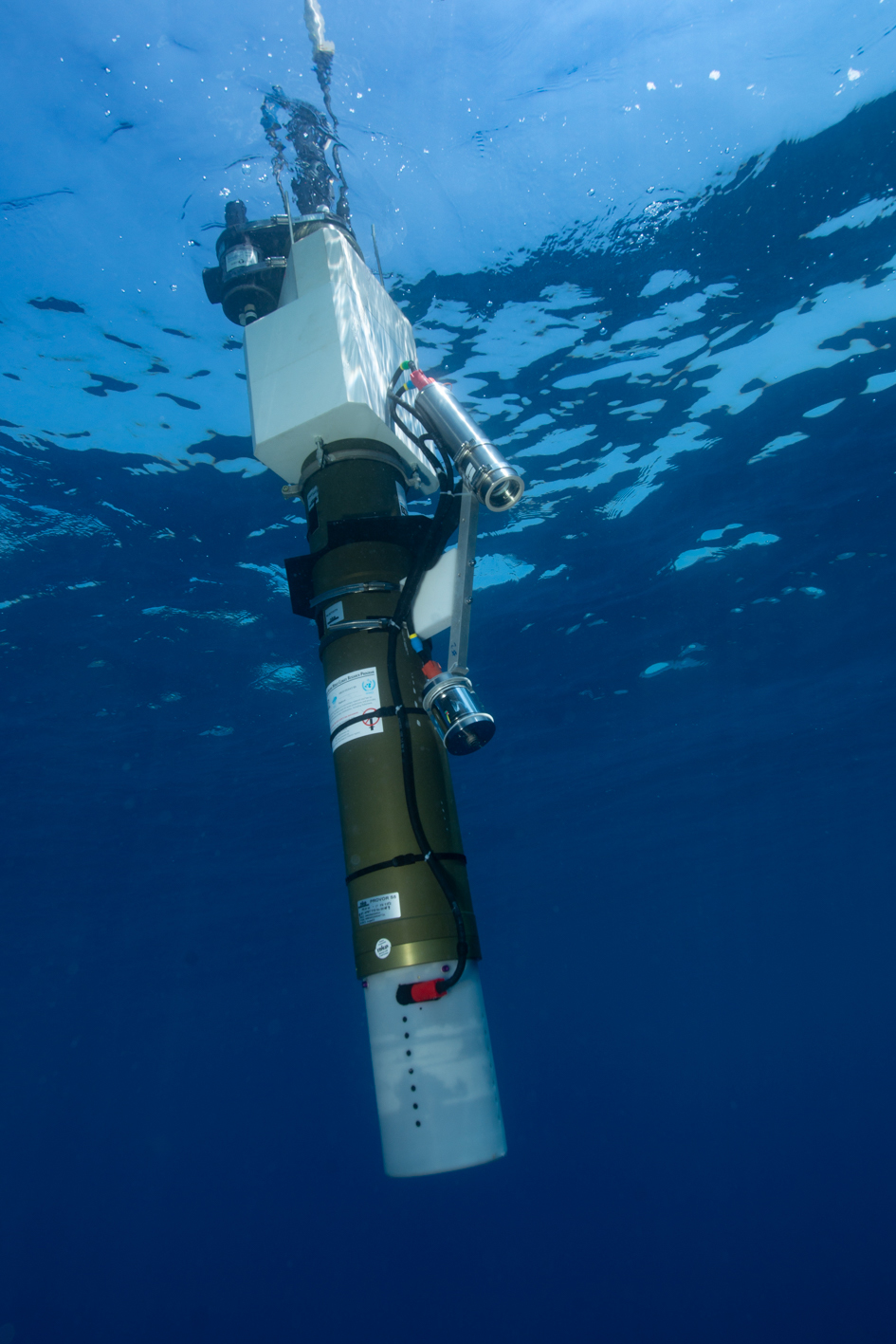2020 September, 28
The Principality of Monaco supports the Argo program
The Principality of Monaco supports the multidisciplinary development of the Argo programme, a leading programme for ocean observation
Since August 2020, Monaco Explorations has been collaborating in the development and consolidation of the Argo program and its biogeochemical component (BGC-Argo), as part of the Global Ocean Observing System (GOOS). This support is reflected in the financing of a program office located at the Oceanographic Museum of Monaco and with a project manager based at the Institut de la Mer de Villefranche (IMEV), which is supervised by the CNRS and Sorbonne University. The position is directly attached to the JCOMMOPS centre of the World Meteorological Organisation (WMO) and the Intergovernmental Oceanographic Commission (IOC) of UNESCO.
The main task of the project manager will be to organise the BGC-Argo programme and to develop strong synergies with other ocean observation programmes, particularly in the Mediterranean region. This funding constitutes an important contribution by the Principality of Monaco to world oceanography and its governance, with a view to sustainable management of the Ocean.

BGC-Argo: a new generation of multi-disciplinary autonomous floats for a better understanding of the Ocean
Since 2000, the international Argo programme, under the aegis of the IOC and the WMO, has been monitoring the temperature and salinity of the World Ocean over the long term using autonomous robots (profiling floats). The instruments go on 10-day cycles during which they dive to depths of up to 2000 metres and drift with the currents, then return to the surface and transmit their data by satellite before setting off on a new dive. In 2019, Argo defined its strategic vision for the next 10 years based on three components that together will enable it to deploy and operate a fleet of 4,000 instruments: core-Argo, which extends the initial programme, deep-Argo, which extends observations to the deep ocean (6,000 m), and Biogeochemical-Argo (BGC-Argo).
Launched in 2016, BGC-Argo aims to establish a network of 1,000 new-generation profiling floats measuring six additional variables essential to understanding biogeochemical processes and their evolution: concentrations of chlorophyll, suspended particles, dissolved oxygen and nitrate, pH and underwater illumination. BGC-Argo is led by a body co-chaired in France by Hervé Claustre, CNRS research director at IMEV and in the United States by Ken Johnson, senior scientist at the Monterey Bay Aquarium Research Institute.
All the data collected are made available to the international scientific community in real time in the form of Open Data and are analysed in several reference laboratories. The two main responsibilities of the future project leader will be to promote and develop BGC-Argo at the international level and to integrate the regional Mediterranean observation systems.

Many ocean areas still not covered
In order to cover the whole of the World Ocean and better understand its functioning and evolution, additional floats need to be deployed. In collaboration with Hervé Claustre, Monaco Explorations is planning to help to deploy several floats in relatively unknown areas, involving the training of local experts and encouraging outreach among young people, notably by supporting the “Adopt a float ” initiative.
